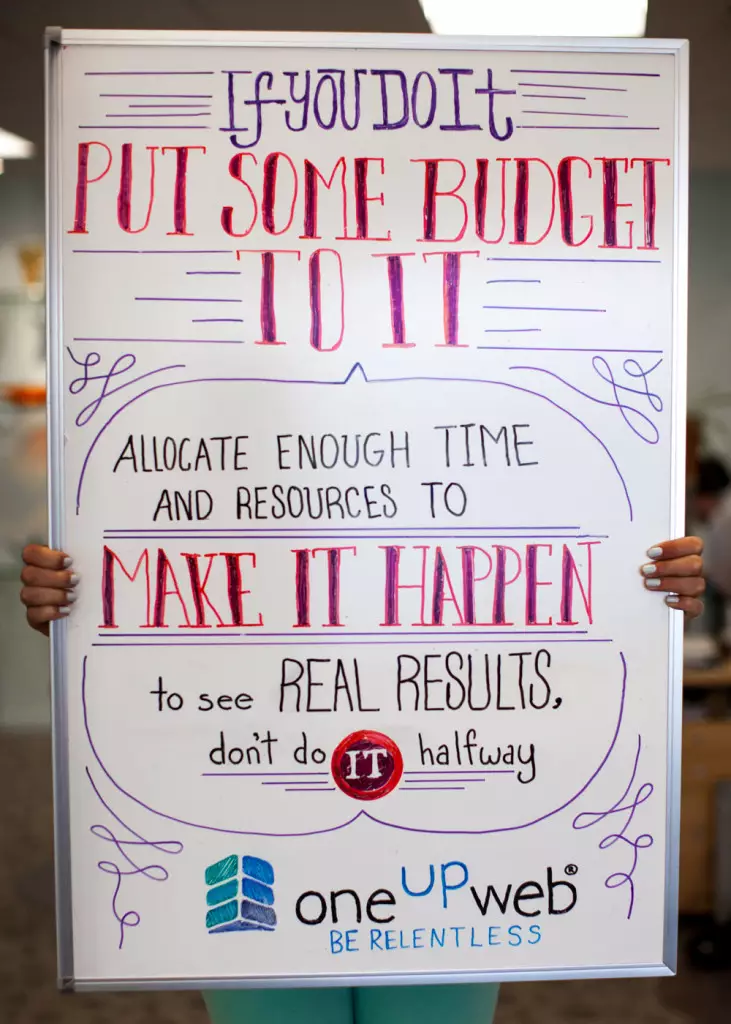Allocate Your Marketing Budget Like a Pro: 3 Fail-Proof Steps
Whether you represent a brand that’s large, small or somewhere in between—you’re likely dealing with a marketing budget that feels stretched—at best. Marketing budgets don’t tend to run in excess, despite the fact that digital flipped marketing from a cost center to a profit center for most businesses.
So where do you start? How do you ensure that you’re investing that precious budget in the right places when there seems to be so little of it to go around? Here are three fail-proof steps.
1. Simplify
Embrace the fact that it is better to utilize a few marketing tactics and channels that perform really well for your brand than it is to “test” several tactics and channels that only do “ok”. Quite often, when you test a channel you don’t allocate enough time or budget to it to really gauge performance. And it seems rational to limit your risk. But think of it in this scenario:
You have a dollar bill and you’re tasked with getting the most value from it. Do you
a) Take it to the nearest cashier, turn it into 100 pennies, solicit 100 helpers and request each to take a penny to a different store and return with the most value they can for that penny?
b) Keep the dollar intact, visit just a few stores on your own and leverage the buying power of a dollar vs. 1/100th of a dollar?
Sure, the gamblers out there are conjuring up memories of Kyle MacDonald and his ambitious trading which took him from the owner of one red paper clip to the owner of a house. But it isn’t likely. Limited budgets seem to come packaged with limited time and talent. Stick with option B.

Understand who your target audience is, where they are expecting to interact with or make decisions about your brand (or the products/services it represents) and how much it will take to make a resonant impact there. If you’ve determined that your target customers will all be at a specific trade show—but you can’t afford any space on the trade show floor—the trade show might not be the right option for you.
2. Don’t Overlook Goals & Analytics
What will “success” for your brand look like and how will you be able to measure and show performance? This is critically important. Let’s say you’ve done a traffic analysis and have determined that a vast amount of your potential customers pass by a particular intersection and there just happens to be some billboard space available there. To get a billboard up, it will take about half of your budget for the quarter. You decide you’ve done your research and the investment is worth. Flash forward to the meeting where you have to show the value that your team, your strategy, your budget allocations have brought to the company. How will you account for this? There are a few ways—but the point is—you have to make goals and analytics a part of your plan proactively.
Marketing is equal parts art and science and most scientists don’t work on gut instinct alone. Use the tools at your disposal.
3. Forget the New Fangled Strategy/Channel/Tactic
Digital marketing makes great strides in sophistication, targeting and adoption daily. But some things fizzle as quickly as they flame. Don’t focus first on the channel—focus first on your customer and understand which channels they are interacting with. Make sure you’re there. It doesn’t matter if you develop the coolest iPad app ever if your target demographic doesn’t have a propensity for tablets and apps.
Remember QR codes? Augmented reality? Myspace?
The smartest marketing campaigns are the ones that integrate flawlessly into their intended targets habits and behaviors—moving them to conversion.
Happy planning! And of course, if you’d like an outside opinion on where to allocate your marketing resources in the year ahead we’re happy to help.